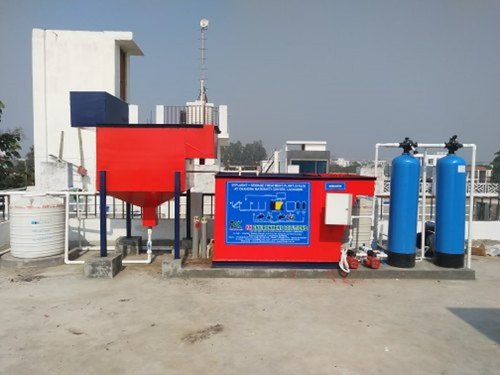Sewage Treatment Plant for Hospitals
TR Aqua Private Limited is a leading manufacturer and supplier of Sewage Treatment Plant for Hospital. We offer a wide range of STP Plant at affordable prices. A well-designed Sewage Treatment Plant (STP) is essential to manage this complex wastewater safely and efficiently, ensuring compliance with stringent regulations, protecting public health, and maintaining operational efficiency. This guide provides an overview of the importance of STPs in hospitals, their key features, and the benefits they offer. Wastewater generated, which often contains harmful pathogens, chemicals, and pharmaceuticals. This STP plant treats this water and produces clean water for hospital needs.

Benefits of Sewage Tratement Plant for Hoispital
- Environmental Protection: Prevents water pollution by treating hospital wastewater.
- Water Conservation: Recycles treated water for non-potable uses, reducing costs.
- Public Health: Eliminates harmful pathogens, reducing health risks.
- Sustainability: Supports eco-friendly practices and hospital sustainability.
- Efficient Waste Management: Effectively treats high-organic load wastewater.
Public Health: Eliminates harmful pathogens, reducing health risks.
Work Of Sewage Treatment Plant (STP) for Hospitals:
Pre-Treatment: Large solids are removed through screening.
Primary Treatment: Heavy solids settle, and lighter materials are skimmed off.
Secondary Treatment: Biological processes break down organic matter.
Tertiary Treatment: Advanced filtration and disinfection (UV or chlorine) remove remaining contaminants.
Sludge Handling: Sludge is treated for safe disposal or reuse.
Water Reuse/Discharge: Treated water is reused for non-potable purposes or safely discharged.
Get in Touch

At TR Aqua, we work with full focus on the quality of our product, we use high quality material and advanced technology in manufacturing our product. Our product offers best performance, reliability and durability to customers. If you are looking for a Sewage Treatment Plant for a Hospital, you are at the right place TR Aqua PVT. LTD. the leading Sewage Treatment Plant for Hospital.
